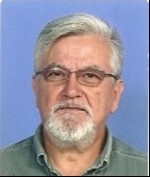FEATURED PAPER
By Prof. Dr. Pieter Steyn
Cranefield College, South Africa
and
Prof. Dr. Brane Semolič
LENS Living Lab, Slovenia
Abstract
The Industry 4.0 economy has seen dynamic capabilities theory emerging as a profoundly important element in creating performance rich virtual dynamic learning organizations (VDLOs) to replace dysfunctional bureaucratic entities. Customer expectations, product and service enhancement, collaborative innovation, and organizational forms are aspects profoundly affected by the new order. Collaborative innovation is of paramount importance for increased competitiveness, as well as, product / service, and concomitant process improvements that inspire new business models and organizational paradigms and structures. To guarantee success it is important having super-transformational collaboratist leaders at the helm.
Key words: Collaboration, Innovation, Collaboratist Leadership, Process Design, Competitiveness, Business Models, Organisational Paradigms and Structures. Business Relations, Collaboration Maturity Model.
Introduction
According to Teece (2007) dynamic capabilities enable business enterprises to create, deploy, and protect the intangible assets that support superior long-run business performance. Dynamic capabilities are defined as an ability to reconfigure, redirect, transform, and appropriately shape and integrate existing core competences with external resources, and strategic and complementary assets to meet the challenges of a time pressured, rapidly changing world of competition. He describes the micro-foundations of dynamic capabilities as distinct skills, processes, procedures, organizational structures, decision rules, and disciplines, which support enterprise-level sensing, seizing, and reconfiguring capacities that are difficult to develop and deploy. Teece (2007) avers that enterprises with strong dynamic capabilities are intensely entrepreneurial. They adapt to business ecosystems, and shape them through innovation and through collaboration with other enterprises, entities, and institutions.
Cetindamar et al (2009) aver that technological enhancements continuously create challenges and opportunities for new product development and industrial development diversification. They believe that such opportunities need to be captured and converted into value through effective and dynamic technology management. But a new way of understanding technology management, capturing its dynamic nature and the managerial features are required. This, they believe could be captured through an appropriate paradigms or perspective for understanding technology management through dynamic capabilities theory. They believe that technological changes continuously create new challenges and opportunities in product, service, process, and organisational development, which requires new ways of understanding the very important supporting managerial aspects. Semolic and Steyn (2017, September and 2018, August) concur and believe that the latter is an extremely important strategic leadership issue in the Industry 4.0 economy.
The traditional approach to leadership sees the concept as strategic, and as a social influencing process being exerted over people. In an organisational context the latter refers to a person’s subordinates within a team. As CEO it refers to a person’s influence over employees within an entire organisation. Hence, the focus is on human capital as key value creator. The period before and during the emergence of the Industry 4.0 economy was accompanied by growing competitive intensity in the business environment and increasing complexity of organisations. The focus shifted to include creating internal and external leadership capacity that aims to effectively meet the situational challenges of the day.
The challenge became increasingly to define corporate strategy and build a supportive organisational climate and culture that promote customer service excellence and more leadership collaboration. In this context leadership is defined as the ability of the CEO as leader to effectively foster the appropriate habits of visionary companies through a well-developed strategy-based Balanced Scorecard, and applying project and program management to achieve the organisation’s mission (Steyn and Zovitsky, 2018). Strategy and organisational structure were seen as a second set of variables making up the concept of leadership as regards the ability to provide vision, mission and focus.
According to Steyn and Schmikl (2016) leadership is about engendering passion with followers, and inspiring those that you lead to rise to greater heights they would not achieve by themselves. Leadership is the skill of journeying in the hearts of those that you lead and building an organisational mind-set, knowing that all actions flow from people. People’s motivational levels and attitudes play an important role in leadership success. Moreover, leadership is about goalsetting processes, ensuring value add that will bring growth to the organisation and its people, and developing people’s talents through education and training to best serve the organisation (Schmikl, 2018). Leadership is also about coaching and mentoring, and giving strategic direction to those that you lead in order to enhance the organisation’s experience curve.
More…
To read entire paper, click here
How to cite this paper: Steyn, P., Semolic, B. (2020). Leading Virtual Dynamic Learning Organizations; PM World Journal, Vol. IX, Issue V, May. Available online at https://pmworldlibrary.net/wp-content/uploads/2020/04/pmwj93-May2020-Steyn-Semolic-Leading-Virtual-Dynamic-Learning-Organisations.pdf
About the Authors

Prof Dr Pieter Steyn
Founder, Director, Principal
Cranefield College of Project and Programme Management
Pretoria & Western Cape, South Africa
![]()
Dr Pieter Steyn is Founder and Principal of Cranefield College of Project and Programme Management, a South African Council on Higher Education / Department of Education accredited and registered Private Higher Education Institution. The Institution offers an Advanced Certificate, Advanced Diploma, Postgraduate Diploma, Master’s degree, and PhD in project and programme-based leadership and management. Professor Steyn holds the degrees BSc (Eng), MBA, and PhD in management, and is a registered Professional Engineer.
He was formerly professor in the Department of Management, University of South Africa and Pretoria University Business School. He founded the Production Management Institute of South Africa, and in 1979 pioneered Project Management as a university subject at the post-graduate level at the University of South Africa.
Dr Steyn founded consulting engineering firm Steyn & Van Rensburg (SVR). Projects by SVR include First National Bank Head Office (Bank City), Standard Bank Head Office, Mandela Square Shopping Centre (in Johannesburg) as also, Game City- and The Wheel Shopping Centres (in Durban). He, inter alia, chaired the Commission of Enquiry into the Swaziland Civil Service; and acted as Programme Manager for the Strategic Transformation of the Gauteng Government’s Welfare Department and Corporate Core.
Pieter co-authored the “International Handbook of Production and Operations Management,” (Cassell, London, 1989, ed. Ray Wild) and is the author of many articles and papers on leadership and management. He is a member of the Association of Business Leadership, Industrial Engineering Institute, Engineering Association of South Africa, and Project Management South Africa (PMSA); and a former member of the Research Management Board of IPMA. He serves on the Editorial Board of the PM World Journal. Pieter is also Director of the De Doornkraal Wine Estate in Riversdale, Western Cape.
Professor Steyn can be contacted at cranefield1@cranefield.ac.za. For information about Cranefield College, visit www.cranefield.ac.za.
To view other works by Prof Steyn, visit his author showcase in the PM World Library at https://pmworldlibrary.net/authors/dr-pieter-steyn/

Prof Dr Brane Semolič
Founder and Head of LENS Living Lab –
International living laboratory
Celje, Slovenia
![]()
Brane Semolič studied mechanical engineering, engineering economics, and informatics; he holds a scientific master degree and doctorate in business informatics. His focus of professional interest is industrial and system engineering, innovation and technology management, virtual organizations and systems, project and knowledge management. He has 40 years of working experiences in different industries (industrial engineering, IT, chemicals, household appliances, government, and education), as an expert, researcher, manager, entrepreneur, counselor to the Slovenian government and professor. He operates as head of the open research and innovation organization LENS Living Lab. LENS Living Lab is an international industry-driven virtual living laboratory. He is acting as initiator and coordinator of various research and innovation collaboration platforms, programs and projects for the needs of different industries (ICT, robotics, laser additive manufacturing, logistics, education). He was co-founder and the first director of the TCS – Toolmakers Cluster of Slovenia (EU automotive industry suppliers). Since 2004 he is serving as the president of the TCS council of experts. Besides this, he is operating as a part-time professor at the Cranefield College.
He was head of project and information systems laboratory at the Faculty of Mechanical Engineering, Head of the Project & Technology Management Institute at the Faculty of Logistics, University of Maribor and professor of project and technology management at the graduate and postgraduate level. He acted as a trainer at the International »European Project Manager« post-graduated program, organized jointly by the University of Bremen.
He was the co-founder and president of the Project Management Association of Slovenia (ZPM), vice president of IPMA (International Project Management Association), chairman of the IPMA Research Management Board (2005-2012), and technical vice-chairman of ICEC (International Cost Engineering Council). Now he is serving as a director of the IPMA & ICEC strategic alliance. He actively participated in the development of the IPMA 4-level project managers’ certification program. He introduced and was the first director of the IPMA certification program in Slovenia. He has been serving as the assessor in this certification program since 1997. He performed as assessor in the IPMA International PM Excellence Award Program in China, India, and Slovenia.
He is a registered assessor for the accreditation of education programs and education organizations by the EU-Slovenian Quality Assurance Agency for Higher Education.
He was a Member of Strategic Advisory Board of European Competitiveness and Innovation, as well as the president of the Slovenian Chamber of Business Services.
Brane received the award as ICEC Distinguished International Fellow in 2008. He received the »Silver Sign« for his achievements in research, education, and collaboration with the industry from the University of Maribor in 2015.
Professor Semolič is also an academic advisor for the PM World Journal. He can be contacted at brane.semolic@3-lab.eu. Additional information about the LENS Living Lab can be found at http://www.3-lab.eu/ .
To view other works by Prof Semolic, visit his author showcase in the PM World Library at https://pmworldlibrary.net/authors/brane-semolic/









